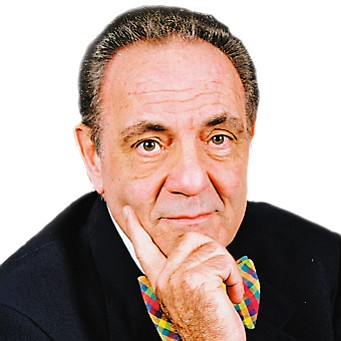Dear Mr. Berko: Please explain what happens to the market during the third year of a president’s term in office. The market is supposed to be up the third year, and I would like to invest about $20,000 very conservatively if you think the Dow Jones industrial average will go higher during the coming year. My broker told me to ask you what to buy.
— JW, Kankakee, Ill.
Dear JW: You’re referring to the presidential stock cycle, the numbers from which show that the Dow Jones industrial average has a better performance during the third year of a president’s term in office (regardless of whether it’s a first term or second term) than it does in any of his other years. The consistency is remarkable. Since 1896, according to Barrons, the 30 companies included in the Dow Jones industrial average have gained an average of 15 percent, including dividends, during a president’s third term, with an 82 percent degree of reliability. That’s nearly four times the average gain (4.4 percent) in all other years. And again according to Barrons, the third year of a president’s second term in office, the Dow Jones industrials have gained 18.4 percent. And during all second-term third years that followed two years in which the market gained, the Dow has been plus an impressive 18.7 percent.
The real reason behind the presidential stock cycle is that politicians go to extreme lengths and do everything within their power (some go to greater lengths) to get re-elected. And many of the greater lengths that politicians go to are outright embarrassing and illegal. That’s why I define politics as two words: “poly,” a Greek word meaning “many,” and “ticks,” which are bloodsucking parasites.
This 82 percent degree of reliability that the stock market will rise is an impressive figure. But an even more impressive figure is a 100 percent degree of reliability. That’s how often the Dow has risen in the third year of a presidential term since 1940. And most professionals believe that 1940 is a more relevant point on which to focus.
They note that the government’s role in the economy and the White House’s ability to affect electoral outcomes grew enormously with the advent of the New Deal and the stimulus of World War II. So since 1940, the Dow Jones industrials have risen in every third year of a presidential term, gaining an average of 22.3 percent. So, sweetheart, that ain’t chopped liver, as Bernie Madoff was often heard to say. And it’s an especially lovely figure because it contrasts markedly with the 3.1 percent average gain for all non-third years since 1940. So tell your broker to buy 100 shares of the Dow Jones Industrial Average ETF (DIA-$180.06), a fund mimicking the performance of the Dow.
Then there are naysayers who believe that this impeccable Dow Jones record will end this year as abruptly as a rabbit’s tail. They believe there are no more arrows remaining in the government’s quiver, and here are their reasons: 1) Interest rates are at zero. 2) The Federal Reserve can’t make the cost of borrowing any lower. 3) Interest rates are certain to rise. 4) Our fiscal deficit is in the hundreds of billions of dollars. 5) Our dollar has risen in value against most currencies. 6) Record consumer installment and credit card debt ($3.3 trillion) will depress the growth of our gross domestic product.
Meanwhile, Russia is floundering; its ruble is crashing, and it costs Russia $92 to produce a barrel of oil, which trades at $60. Europe has enormous unemployment problems and is struggling to keep its collective head above water. Even Australia has its share of economic woes. But Russia’s problems take the cake. Many believe that the Russian economy can’t improve under the current regime. Unfortunately, the crisis there may be worse than the West realizes, so the Russian bear and her 146 million cubs are mewling in despair. The biggest fear — and it’s unspoken — is that Russian President Vladimir Putin will try to solve his country’s economic problem by engaging the West in some form of hostility. It would work because war creates full employment, which helps people forget their miseries. And be mindful that Putin plays a better game of chess than President Barack Obama.



